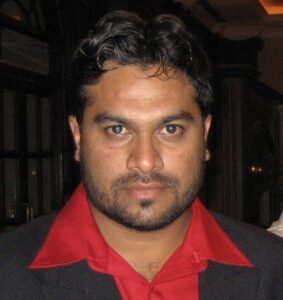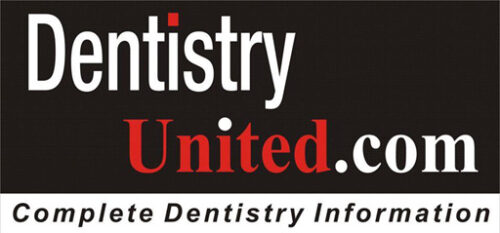Hey there, new dental grad! You’ve just earned your degree, and now you’re standing at the crossroads of an exciting, tech-driven future in dentistry. Artificial Intelligence (AI), Machine Learning (ML), and digital dentistry are shaking things up, offering you ways to blend your passion for patient care with cutting-edge innovation. This guide is your roadmap to explore career options in this dynamic field, written in a way that feels like a conversation with a friend who’s been there. Let’s dive into the possibilities, what it takes to get started, and how you can make your mark.
Why AI and Digital Dentistry Are Game-Changers
Picture this: you’re reviewing a patient’s X-ray, and an AI tool highlights a tiny cavity you might’ve missed. Or you’re designing a crown using a digital scanner that’s faster and more precise than traditional molds. That’s the power of AI and ML in dentistry—tools that make diagnoses sharper, treatments smarter, and workflows smoother. From AI analyzing dental images to 3D printers crafting restorations, technology is transforming how dentists work. As a fresh grad, you’re stepping into a world where these tools aren’t just gadgets—they’re your future toolkit.
So, what can you do with this tech? Whether you love working with patients, tinkering with software, or teaching others, there’s a career path for you. Let’s break it down.
Career Paths to Explore
1. Tech-Savvy Clinical Dentist
- What’s the Gig? You’re a dentist who uses AI tools to level up your practice. Think spotting early signs of gum disease with AI-powered imaging or planning Invisalign treatments with digital precision.
- What You’ll Do: Work with tools like intraoral scanners (say, iTero) or AI diagnostic software to catch issues early and plan treatments. You’ll still do fillings and cleanings, but with tech that makes you faster and more accurate.
- Where You’ll Work: Private offices, group practices, or even mobile clinics embracing digital tools.
- Skills You Need:
- Get comfy with digital scanners and imaging software.
- Learn to read AI-generated reports without losing your clinical gut.
- Stay curious about new tech hitting the market.
- Why It’s Awesome: You’re helping patients directly while using the latest gadgets. It’s like being a dentist and a tech wizard.
- The Catch: You’ll need to keep learning as tech evolves, and some practices might not have the budget for fancy tools yet.
- How to Start:
- Take short courses on digital dentistry (check out platforms like Spear Education).
- Shadow a dentist using AI tools during residency.
- Join a tech-forward practice to get hands-on experience.
2. Dental AI Researcher
- What’s the Gig? You’re the brain behind new AI tools, helping create software that can, say, detect oral cancer faster than ever.
- What You’ll Do: Team up with techies to build and test algorithms using dental data, like X-rays or patient records. You might publish papers or present at conferences.
- Where You’ll Work: Universities, research labs, or companies developing dental tech.
- Skills You Need:
- A knack for data and some coding basics (Python’s a good start).
- Deep knowledge of dental conditions to make AI clinically useful.
- Research skills to design studies and share results.
- Why It’s Awesome: You’re pushing dentistry forward, maybe even inventing tools that change lives.
- The Catch: You’ll likely need a Master’s or PhD, and it’s less about patients and more about data.
- How to Start:
- Look into grad programs in dental informatics or data science.
- Volunteer for research projects in dental school.
- Hit up events like the International Dental Show to meet researchers.
3. Dental Tech Consultant
- What’s the Gig? You help dental offices go digital, guiding them on which AI tools or scanners to buy and how to use them.
- What You’ll Do: Visit practices, assess their needs, and train staff on tools like 3D printers or AI diagnostics. You’re the bridge between dentistry and tech.
- Where You’ll Work: With dental tech companies, consulting firms, or as your own boss.
- Skills You Need:
- Know your way around digital dental tools.
- Be a people person who can explain tech to non-techies.
- Understand how dental offices run.
- Why It’s Awesome: You get variety, meet lots of people, and help practices modernize.
- The Catch: You might travel a lot, and it’s less hands-on with patients.
- How to Start:
- Use digital tools in a clinical setting first to build expertise.
- Get certified in dental tech or practice management.
- Network with tech companies at dental expos.
4. Dental AI Product Developer
- What’s the Gig? You work with tech companies to create AI tools or digital systems, like software for designing crowns or robots for dental procedures.
- What You’ll Do: Help design products, test them to ensure they work for dentists, and make sure they solve real clinical problems.
- Where You’ll Work: Startups, big dental tech firms, or even companies making dental robots.
- Skills You Need:
- A bit of coding knowledge (or at least not being scared of it).
- Insight into what dentists and patients need.
- Creativity to design user-friendly products.
- Why It’s Awesome: You’re building the future of dentistry, and the pay can be great.
- The Catch: It’s tech-heavy, so you’ll need to learn new skills, and projects can take time.
- How to Start:
- Take online coding or AI courses (try Udemy or Khan Academy).
- Intern at a dental tech company.
- Show off small projects, like a mock-up of a dental app, to employers.
5. Digital Dentistry Educator
- What’s the Gig? You teach other dentists or students how to use AI and digital tools, sharing your knowledge through classes or workshops.
- What You’ll Do: Create lessons, lead training sessions, or make online tutorials about using AI in dentistry, like how to read digital scans.
- Where You’ll Work: Dental schools, online platforms, or professional training centers.
- Skills You Need:
- Solid grasp of AI and digital dentistry tools.
- Ability to explain complex stuff simply.
- Some clinical experience to make your teaching relatable.
- Why It’s Awesome: You’re shaping the next generation of dentists and staying in the academic loop.
- The Catch: You might need extra education, and it’s less about patient care.
- How to Start:
- Get some clinical experience with digital tools first.
- Take teaching-focused CE courses.
- Start creating content, like blog posts or videos, to build your rep.
What You’ll Need to Succeed
To shine in these roles, you’ll need a mix of skills:
- Dental Know-How: Your degree gives you the foundation—knowing teeth and gums inside out is key.
- Tech Chops: You don’t need to be a coder, but understanding AI basics or how to use digital scanners helps. A little Python or data analysis goes a long way.
- Stay Curious: Tech changes fast, so keep learning through online courses, dental journals, or webinars.
- People Skills: Whether you’re working with patients, techies, or students, being clear and collaborative is huge.
Education Boosts:
- Short Courses: Look for continuing education on digital dentistry or AI (ADA or online platforms like Coursera).
- Advanced Degrees: A Master’s in dental informatics or tech-related fields can open research or developer roles.
- Hands-On Experience: Residencies or internships in tech-forward practices are gold.
Things to Watch Out For
It’s not all smooth sailing. Here’s what to keep in mind:
- Learning Never Stops: New tools pop up constantly, so you’ll need to stay on top of them.
- Ethical Stuff: AI can mess up if data’s biased or privacy isn’t tight. You’ll need to advocate for fair, safe tech.
- Money Matters: Some practices can’t afford high-tech gear yet, which might limit where you work.
- Pushback: Not every dentist is ready to go digital, so you might need to win them over.
Your First Steps
Ready to jump in? Here’s how to start:
- Play with Tools: Try out AI dental software or scanners through demos or free trials.
- Connect: Follow digital dentistry pros on LinkedIn or join dental tech groups.
- Get Experience: Work in a practice that uses AI or digital tools to learn on the job.
- Learn More: Take a course on AI or digital dentistry to boost your skills.
- Stay in the Loop: Read up on trends through dental blogs or events like dental trade shows.
What’s Next for Dentistry?
The future’s looking wild. AI could soon handle routine checkups, guide robotic surgeries, or make teledentistry a breeze, letting you focus on the tough cases and connecting with patients. The dental tech market is growing fast, and you’re entering at the perfect time to make a difference.
Wrapping It Up
As a new dental grad, you’ve got a world of options in AI, ML, and digital dentistry. Whether you’re drawn to patient care, research, consulting, building tech, or teaching, there’s a path that fits your vibe. Start exploring tools, learning new skills, and connecting with pros in the field. The digital dentistry wave is here, and you’re ready to ride it. Where will you go next?

About the Author
Dr. Syed Nabeel, BDS, D.Orth, MFD RCS (Ireland), MFDS RCPS (Glasgow), is a clinician-scholar whose career spans over two decades at the intersection of orthodontics, neuromuscular dentistry, and digitally integrated diagnostics. As Clinical Director of Smile Maker Clinics Pvt. Ltd., he has pioneered a philosophy of care rooted in anatomical precision, occlusal neurophysiology, and contemporary AI-enhanced workflows. A Diplomate in Orthodontics from Italy and an alumnus of advanced programs at Various International Universiteis , Dr. Nabeel brings a globally benchmarked clinical acumen to the nuanced management of temporomandibular disorders, esthetic rehabilitation, and algorithm-guided orthodontics.
In 2004, he founded DentistryUnited.com, a visionary platform connecting over 40,000 dental professionals through peer learning and collaborative dialogue. His academic drive led to the launch of Dental Follicle – The E-Journal of Dentistry (ISSN 2230-9489), a peer-reviewed initiative now indexed in EBSCO, fostering interdisciplinary scholarship across clinical domains.
A prolific educator, he has contributed to UGC and national broadcast media as a subject expert and regularly speaks at scientific forums, favoring small-group, discussion-based formats that emphasize clinical realism over theoretical abstraction. His ethos remains steadfast: knowledge, when shared freely, multiplies in value. Dr. Nabeel continues to shape the future of dentistry through research, mentorship, and his enduring commitment to elevating practice standards in India and beyond.
